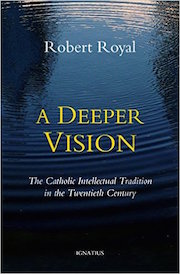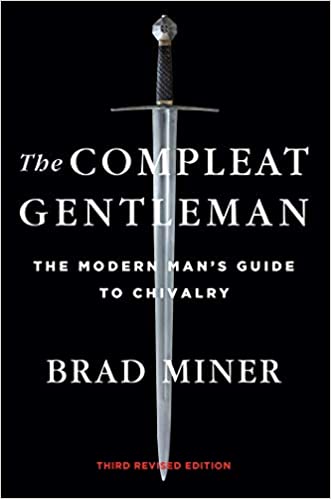“There are nights when you can’t even give it away,” said the young woman, laying on the drollery.
She was of course indulging in fierce satire; being colorful, “rhetorical,” rather than bad. She had no reputation for acting louchely. But thanks to the political correctness pathogen, the language has been spayed.
You can, in practice, give “it” away, though you may not, ever, give “it” away, according to the consensus of Western, which is to say Christian, which means Catholic par excellence, thinkers.
It might be to your advantage, at least temporarily, or you might believe it is to your advantage, to become a slave. The alternative might be to be slaughtered by the Barbary pirates, as American sailors discovered in the years just following the Declaration of Independence.
And verily, it is inconvenient to be murdered.
Yet even to some non-Catholic observers, too, death is preferable to slavery. “Give me liberty, or give me death,” according to the high secularist Patrick Henry, about the same time. It was the British, rather than the Arabs, who were inspiring his “phobia.”
But death seems – for some poor souls – also preferable to pain, including the psychic pain of depression. For instance, in Canada today, and in several U.S. states, the citizen may opt for the “MAID,” meaning “medical assistance in dying,” or euthanasia, as it used to be called.
If, as in my own case, you have had close friends choose this manner of departure, who were desperately ill and close to death anyway, you may be tempted to excuse them, as we excused the office workers who leapt out the windows of the World Trade Center, rather than be fried on 9/11. It just makes your life a fraction shorter.
Should Christ have opted for the Roman sword to be inserted into his side while he was still quite conscious on the Cross? I would guess that any Christian would answer NO, on behalf of Jesus. For Christ, who was God, understood “inalienable”; and we understand it, when applied to Him.
Indeed, the suicide of Judas Iscariot may have been his most self-destructive act; a more grievous sin than turning in Jesus to the authorities. For Judas could still confess and regret this latter decision, and plead for absolution, as it were. But arguably, this possibility lapsed when he hanged himself.
I will not enter into theological controversy on the question of post-mortem confession; leave this to the liberals. We have enough to consider within the boundaries of our lives.
No confession is actually needed from the unborn, whose right to life, as human beings, is nevertheless inalienable.

Your rights, your freedoms, are inalienable. This is because they were bestowed by God. And there is a difficulty with all divine gifts, as even the pre-Christian, pagan Greeks realized, with frightening clarity.
From the moment when you came to be, you were stuck with them. There is no escape.
You CAN’T give them away, because they are not yours to give. You can’t abandon this birthright, just as you can’t abandon the sex with which you were created. Or rather, you can, thanks to the latest medical technology, which allows you to override God’s judgment – for a while.
By submitting to other popular fashions, or to a government’s tyrannical demands, you are verily abandoning, often selling, your birthright. And you do this whether or not your American citizenship papers were in order.
Of course, one might take this too far. One might decide that many fluffy and imaginative whims were one’s birthright, that have nothing to do with God. You know they don’t.
It is, for instance, an open argument at what point confiscatory taxes become confiscatory, and thus a “human rights” issue. The American Founders set this barrier, by implication, very low; at a fraction of what modern bureaucrats are cool with.
But this is still a “judgment call.” A right that is inalienable tends not to be ambiguous. It is, from the state’s point-of-view as well as the citizen’s, expressly in conflict with the right to live in obedience to the terms that God has given.
This is at the root of American law, and of that in all civilized jurisdictions: that when you are ordered to disobey what can clearly be enunciated as a matter of legitimate faith, bringing obedience to God and to the State into direct conflict, your duty is to God.
This may involve arrest and imprisonment, or other forms of discouragement, including execution, as it did for many, if not all of the Christian martyrs, including those in nice, English-speaking jurisdictions like Saint Thomas More’s.
No government has the right, or even the ability, to abrogate God’s commandments, and thus all Nazis, Fascists, and Communists are condemned tout court, together with Islamists and the various other totalitarian ideologues.
Also, all democratic polities are condemned, when they slide off the edge of decency. “The people” may confirm that they approve the government’s wicked actions; but no decent man will allow his inalienable rights to be revoked.
As the medieval scholastics realized, there are times when a tyrant needs to be overthrown; and thus violence may be necessary. In modern terms, this must include the overthrow of an entire sanctimonious committee of tyrants. For patriotism, though in itself possibly virtuous, is not virtue in conflict with right.
God, to my understanding, does not deal in numbers. He deals in truth, and exclusively so, when the alternative is lies. This is quite inalienable.














